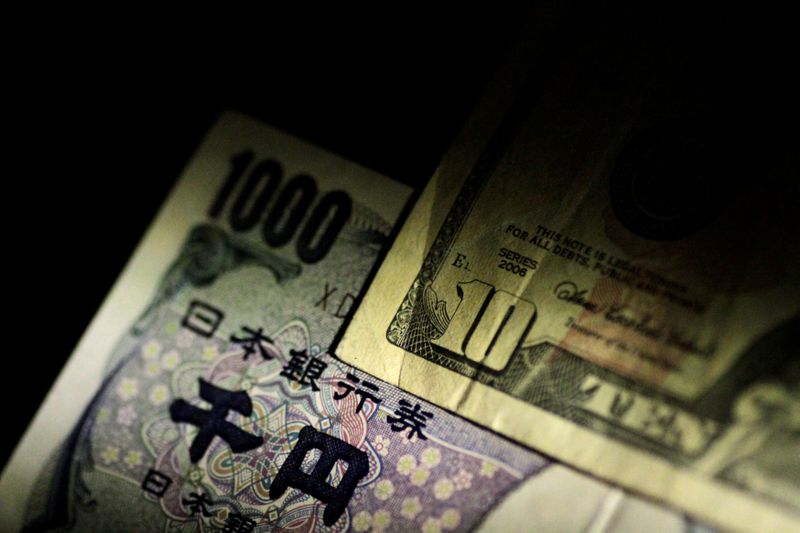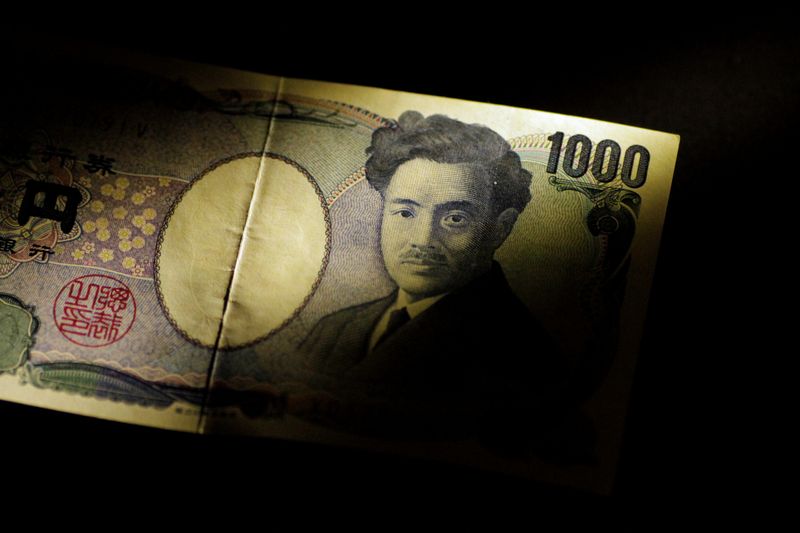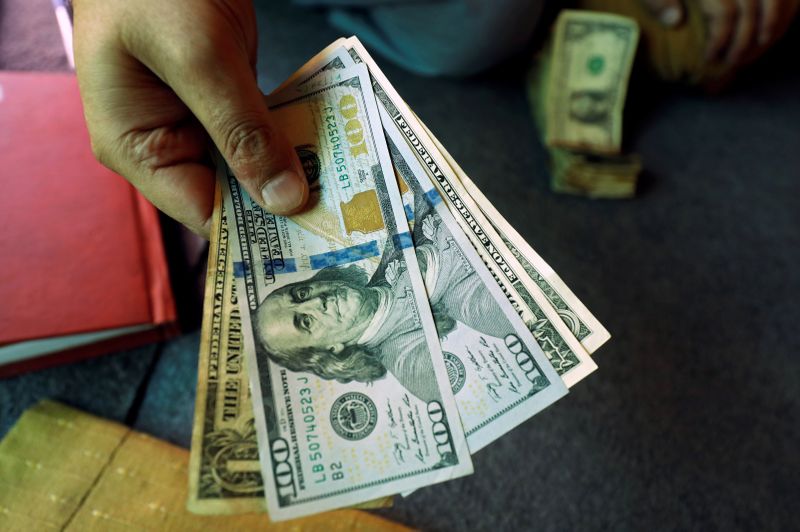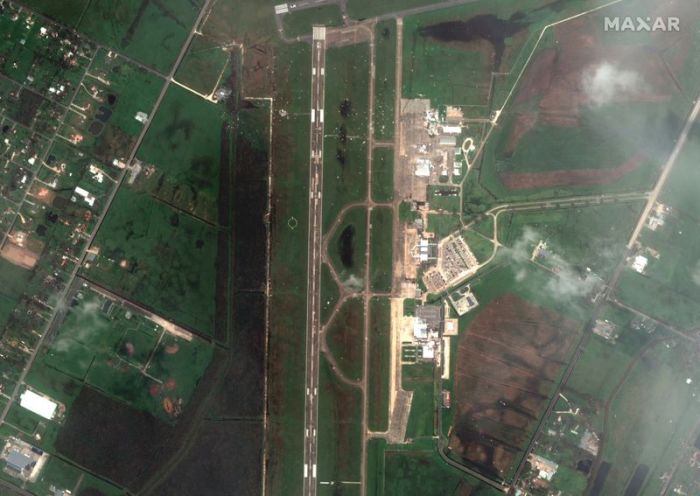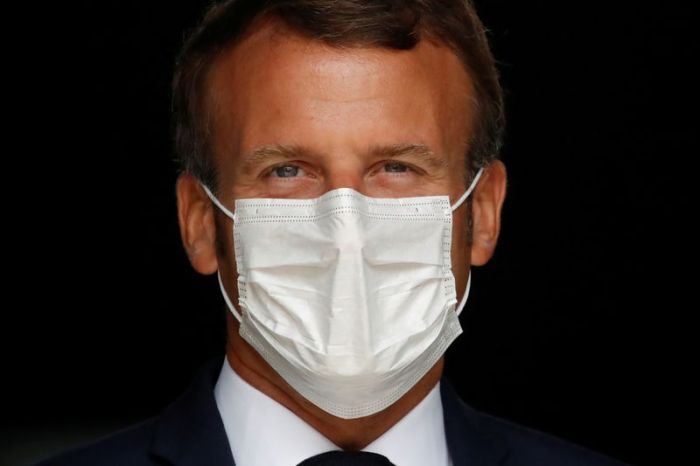NEW YORK (Reuters) – The dollar fell on Friday as the U.S. Federal Reserve’s new policy framework suggested that interest rates would remain low, while the yen surged after Japanese Prime Minister Shinzo Abe announced his resignation.
The yen <JPY=EBS> significantly strengthened against the dollar after the news that Abe, Japan’s longest-serving prime minister, would step down due to worsening health.
Concerns about a possible shift away from Abe’s expansionary economic policy, known as Abenomics, drove the move in the safe-haven currency, investors said.
The dollar was last down 1.1% against the yen at 105.38.
“You’re seeing yen strength on a little bit of uncertainty,” said Lou Brien, strategist at DRW Trading in Chicago. “Abenomics has been one of the more influential economic strategies.”
The greenback resumed its slide against a basket of major currencies in the wake of Fed Chair Jerome Powell’s remarks at the virtual Jackson Hole conference. Powell said the U.S. central bank would seek to keep inflation at 2%, on average, so that periods of too-low inflation would likely be followed by an effort to lift inflation above 2% for some time.
In practice, market participants expect that this means the current ultra-low rates will stay lower for longer, thereby pressuring the dollar. After recovering from an initial slide on Thursday immediately after Powell’s speech, the dollar weakened once again overnight.
The dollar index <=USD> was last 0.7% lower at 92.325.
Both the dovish Fed policy and a sluggish U.S. economic recovery have helped to push down the dollar, said Boris Schlossberg, managing director of FX strategy at BK Asset Management in New York. Ample Treasury issuance over the next month will also likely keep the greenback lower, Schlossberg added.
“The currency market is dubious about the long-term impact of the recovery in the U.S.,” Schlossberg said. “So it’s been favoring non-U.S. assets.”
As the dollar weakened, the euro <EUR=EBS> climbed 0.63% to $1.1896.
The euro’s ascent puts it closer to a technical level near $1.19, which it has tested periodically over the past month, investors said.
Currency markets were broadly pro-risk. The New Zealand dollar <NZD=D3> hit its highest against the U.S. dollar since January while the Australian dollar rose to its highest since December 2018 <AUD=D3>.
========================================================
Currency bid prices at 3:40PM (1940 GMT)
Description RIC Last U.S. Close Pct Change YTD Pct High Bid Low Bid
Previous Change
Session
Euro/Dollar EUR= $1.1896 $1.1821 +0.63% +6.12% +1.1919 +1.1812
Dollar/Yen JPY= 105.3800 106.5500 -1.10% -3.20% +106.9400 +105.2100
Euro/Yen EURJPY= 125.37 125.96 -0.47% +2.80% +126.7500 +125.2000
Dollar/Swiss CHF= 0.9041 0.9088 -0.52% -6.58% +0.9102 +0.9025
Sterling/Dollar GBP= 1.3349 1.3198 +1.14% +0.68% +1.3356 +1.3187
Dollar/Canadian CAD= 1.3088 1.3123 -0.27% +0.79% +1.3132 +1.3047
Australian/Doll AUD= 0.7358 0.7258 +1.38% +4.80% +0.7359 +0.7256
ar
Euro/Swiss EURCHF= 1.0759 1.0744 +0.14% -0.86% +1.0768 +1.0743
Euro/Sterling EURGBP= 0.8911 0.8954 -0.48% +5.41% +0.8974 +0.8909
NZ NZD= 0.6738 0.6637 +1.52% +0.03% +0.6743 +0.6631
Dollar/Dollar
Dollar/Norway NOK= 8.7984 8.9151 -1.31% +0.23% +8.9218 +8.7781
Euro/Norway EURNOK= 10.4670 10.5370 -0.66% +6.39% +10.5530 +10.4530
Dollar/Sweden SEK= 8.6277 8.7160 -0.48% -7.70% +8.7355 +8.6100
Euro/Sweden EURSEK= 10.2659 10.3156 -0.48% -1.94% +10.3215 +10.2602
(Reporting by April Joyner; Additional reporting by Elizabeth Howcroft in London and Swati Pandey in Sydney; Editing by Will Dunham)

